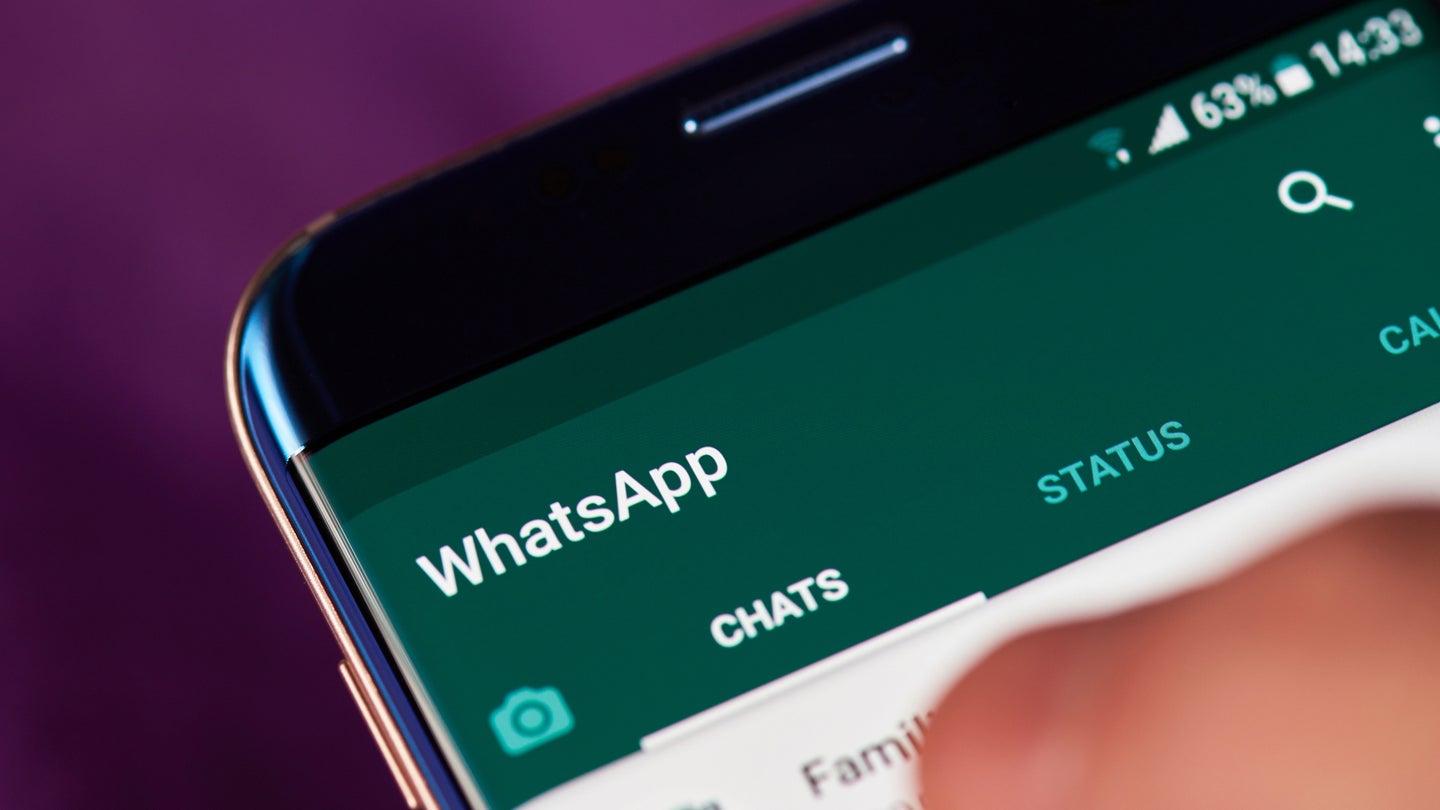WhatsApp released a super-secure new feature for private messages
'Chat Lock' creates a password- and biometric-locked folder for your most sensitive convos.

WhatsApp just got a new feature bolstering its long-standing emphasis on users’ privacy: a “Chat Lock” feature that squirrels away your most confidential conversations.
Much like Apple’s hidden photos option, Chat Lock allows users to create a separate folder for private discussions; it’s protected by either password or biometric access. Any conversations filed within WhatsApp’s Chat Lock section also will block both sender and text in their push notifications, resulting in a simple “New Message” button. According to WhatsApp’s owners at Meta, Chat Lock could prove useful for those “who have reason to share their phones from time to time with a family member or those moments where someone else is holding your phone at the exact moment an extra special chat arrives.”
[Related: WhatsApp users can now ghost group chats and delete messages for days.]
To enable the new feature, WhatsApp users simply need to tap the name of a one-to-one or group message and select the lock option. To see those classified conversations, just slowly pull down on the inbox icon, then input the required password or biometric information to unlock. According to WhatsApp, Chat Lock capabilities are set to expand even further over the next few months, including features like locking messages on companion devices and creating custom passwords for each chat on a single phone.
Chat Lock is only the latest in a number of updates to come to the world’s most popular messaging app. Earlier this month, WhatsApp introduced multiple updates to its polling feature, including single-vote polls, a search option, and notifications for when people cast their votes. The platform also recently introduced the ability to forward media and documents with captions for context.
[Related: 3 ways to hide photos and files on your phone.]
Although it has long billed itself as a secure messaging alternative to standard platforms such as Apple’s iMessage (both WhatsApp and iMessage use end-to-end encryption, as do some other apps), WhatsApp experienced a sizable user backlash in 2021 when it changed its privacy policy to allow for more personal data sharing with its parent company, Meta. Meanwhile, other privacy-focused apps like Signal and Telegram remain popular alternatives.